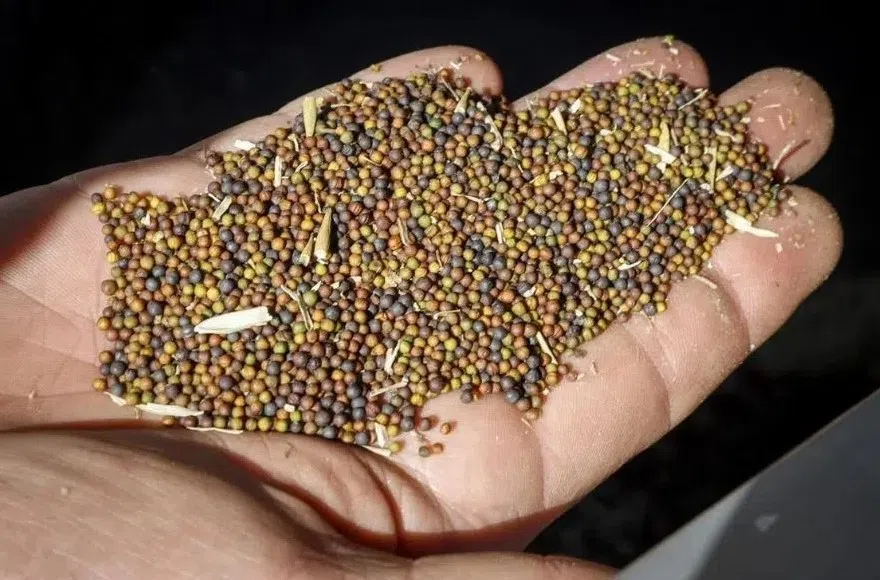Prime Minister Mark Carney announced on Friday the federal government is launching a new $370 million production incentive to assist canola producers in Canada, such as a new biofuel incentive aimed to address “immediate competitiveness challenges,” as China imposes tariffs on Canadian canola seed.
Carney said the federal government will also amend its Clean Fuel Regulations to support the biofuels industry, and temporarily increase the amount producers can receive in interest-free advances, and boost funding to support diversification to new markets.
Chair of the Saskatchewan Oilseeds Board, Dean Roberts, joined The Evan Bray Show following Carney’s announcement to discuss how it could impact farmers in the province.
Read more:
- APAS hoping for more from federal government canola support
- • Tariffs & Saskatchewan: What do tariffs mean for you?
Listen to the full interview with Roberts, or read the transcript below:
The following questions and answers have been edited for length and clarity.
EVAN BRAY: Give me your reaction to what we heard from the Prime Minister.
DEAN ROBERTS: I had a mixed reaction. I’m very grateful that the Prime Minister has acknowledged the issue at hand, the way farmers are being treated, and the issue we have. I’m also cognizant that the enhancements made are going to help farmers, but they’re still not a fix. This isn’t a finish line, and we need the trade issue resolved.
The announcement around the ATP changes is going to give farmers a lifeline. We get some cash for a period of time to see us through, but we still need a political solution to this, so it feels better than it did a week ago, when we had nothing.
Given the last year farmers have had, I’m kind of taking any good news as a good sign.
Parliamentary secretary employees joining Premier Moe on his trip to China, again, that feels positive in contrast to the negativity that has kind of swirled for the last 12 months, which have been pretty rough.
Are there strong, tangible ties for Saskatchewan farmers to feel this is actually going to have a real positive impact for them?
ROBERTS: It’s certainly better than anything we’ve had in the last year.
It doesn’t take us back to where we were or where we should be. So as a farmer, I feel very grateful to be acknowledged, but we still need that political solution, which is still the end game. I don’t think we can take our emphasis or pressure off the federal government. They’ve helped, but they still have to finish the job.
Many people are suggesting online that hearing the Prime Minister announce removing EV tariffs on Chinese vehicles might have been a better ploy to just get rid of these tariffs altogether. Is that something you and your organization have been advocating for? Any direct action that you would like to see the feds take?
ROBERTS: We haven’t really taken a position on the EV tariffs. This is all political in nature, and it will be negotiations back and forth.
Did EV tariffs make sense? Do they need to exist in some way? As a farmer in west central Saskatchewan, I have no idea, but I do know that my canola doesn’t need a tariff, because I’m certainly not dumping my canola.
I don’t really know what they should do with the EV side, but I do know what they need to do with canola, and that’s to go to China and get a resolution.
– With files from The Canadian Press
Read more:











